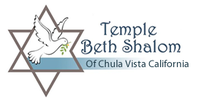The hardened heart is a familiar metaphor in the Bible. Pharaoh, as we know, suffered from a hardened heart. The metaphor of the hardened heart describes how Pharaoh denied his humanity. The heart in the Bible represents the core of our personhood—the wellspring of our humanity. It takes an act of will to deny its tender feelings. Conversely, it takes an act of will to allow the feelings that make us human, come alive.
Remarkably, the face of human suffering does have the ability to make even hard-hearted people to open their hearts.
When we think about the challenges that face Israelis and Palestinians, the status quo is determined to maintain the current state of conflict. Indeed, nothing can be more threatening than someone who is willing to step outside of his or her platonic caves and behold a different reality—a world suffused with light and endless new possibilities.
A brave Palestinian professor named Professor Mohammed S. Dajani did something that most of us probably never thought was possible: He took about thirty students on a visit to Auschwitz-Birkenau concentration camp.
The West-bank professor upset the Al-Quds University administration; they denounced Dajani as a traitor and collaborator—accusations that usually inspire death threats and imprisonment. Like the man of Plato’s cave, he went beyond the cave’s walls and discovered an alternative world. Just as the man was later threatened by other cave-dwellers, so too Dajani now must face the wrath of his own people, whom he has dedicated himself to helping.
The German Research Foundation promoted and underwrote this educational project; it was part of a joint program on conflict resolution entitled, “Hearts of Flesh—Not Stone.” The Israeli students from Ben-Gurion University visited the Dheishe Refugee Camp in Bethlehem as part of the same project.
The term Hearts of Flesh—not Stone is a powerful name, obviously inspired by the famous biblical passage in the Book of Ezekiel:
- I will give you a new heart, and a new spirit I will put within you. I will remove the heart of stone from your flesh and give you a heart of flesh. (Ezekiel 36:26)
“The trip went well as planned,” Prof Dajani told the Jersulaem Post when he returned home. “It helped to explore what lessons would be learnt, and to instill commitment to alleviate human misery by not being a bystander.”
- The students learnt a lot from this visit about human suffering,” he said. “The visit gave them an in-depth understanding of the various aspects of the Holocaust. They now have answers for those who deny the Holocaust. ‘I was there. I saw what happened. I walked on the ground where it happened.’ I find it difficult to understand why anyone would oppose such a visit since students learnt much more than they would sitting in a classroom.”
- Such atrocities should not be repeated anywhere and for any reason,” he said. “They were committed by zealots and extremists and they can be prevented from happening in the future by spreading a culture of moderation, tolerance, and acceptance of the fact we do not need to be copies of each other to exist together and live with one another.”
- “I will go to Ramallah, I will go to the university, I will put my photos of the visit on Facebook, and I do not regret for one second what I did. As a matter of fact, I will do it again if given the opportunity. I will not hide, I will not deny. I will not be silent. I will not remain a bystander even if the victims of the suffering I show empathy for are my occupiers. And this is my final statement on this issue.”


 RSS Feed
RSS Feed
